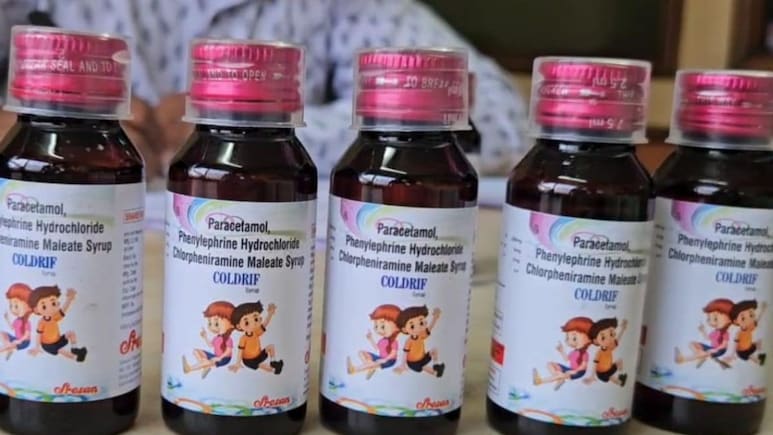
Amid recent developments in the toxic cough syrup crisis, beginning in Madhya Pradesh and now encompassing many other states, an all-India body of doctors has demanded that doctors should not be held solely responsible for child deaths. "This is very unfortunate, and we express our condolences to the families affected. Many drug companies should have been banned, and several drug combinations should not be available in the market. The Madhya Pradesh issue has shown that banned drug combinations are easily accessible," said Dr. Rohan Krishnan, Chief Patron of the Federation of All India Medical Associations (FAIMA), in an exclusive interview with NDTV.
"All individuals who approved this medicine should face strict action. The pay-for-certification system in the healthcare sector is extremely concerning," he added.
Within a few days of consuming a cough syrup, 19 children have died in rural Madhya Pradesh, and five others are in critical condition due to kidney failure. The cough syrup, Coldrif, contained dangerously high levels of diethylene glycol (DEG), a toxic industrial solvent, which led to symptoms such as lethargy and dark urine, ultimately resulting in kidney failure. The Health Ministry has confirmed that samples from the Tamil Nadu manufacturing unit of Coldrif contained DEG above permissible limits. The Center has issued an advisory limiting the use of cough syrups in very young children, and state regulators are conducting widespread testing of syrup samples across multiple batches and brands.
NDTV has accessed a 2023 report that alleges banned or highly regulated chemicals were used in the Coldrif cough syrup in excessive amounts, and mandatory warnings were missing from the labels. A 2023 central government order states that the fixed-dose combination of Chlorpheniramine Maleate IP 2 mg and Phenylephrine HCL IP 5 mg per ml "should not be used in children below four years of age."
According to the NDTV report, while only 0.1% of DEG is allowed in medicines, the cough syrups reportedly contained an alarming 46% to 48% of DEG. The syrup, prescribed to treat symptoms of cold and cough, includes chlorpheniramine maleate, paracetamol, and phenylephrine.
Coldrif, now referred to as the "killer syrup," was recently examined by drug control authorities in Tamil Nadu. On October 2, the authorities declared that the samples were found to be adulterated, containing an alarming 48.6% weight/volume of DEG.
DEG, or diethylene glycol, is used in manufacturing printing ink, glue, brake fluid, and lubricants. Its consumption can cause severe damage to the kidneys, liver, and nervous system in humans. Initial symptoms may include nausea, abdominal pain, and reduced urine output, which can quickly progress to acute kidney failure, seizures, and death.
So far, the sale, distribution, and stock of Coldrif have been banned, along with other suspect syrups made by the manufacturer Sresan Pharmaceuticals (Tamil Nadu). However, 222 bottles of Coldrif syrup (batch SR-13, manufactured in May 2025) have reportedly already been sold to consumers, while 433 bottles have been seized.
Disclaimer: This content including advice provides generic information only. It is in no way a substitute for a qualified medical opinion. Always consult a specialist or your own doctor for more information. NDTV does not claim responsibility for this information.
Track Latest News Live on NDTV.com and get news updates from India and around the world

